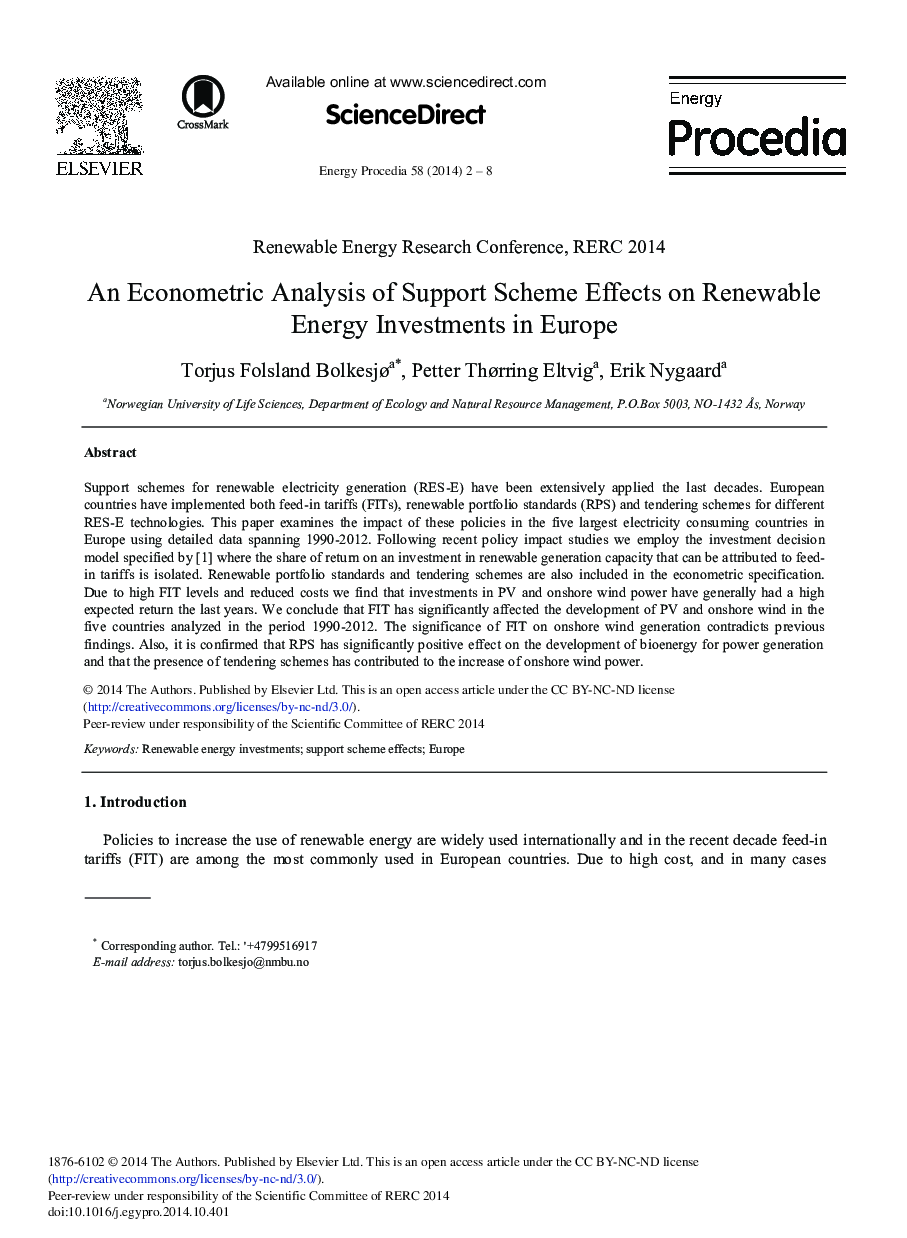| Article ID | Journal | Published Year | Pages | File Type |
|---|---|---|---|---|
| 1510867 | Energy Procedia | 2014 | 7 Pages |
Support schemes for renewable electricity generation (RES-E) have been extensively applied the last decades. European countries have implemented both feed-in tariffs (FITs), renewable portfolio standards (RPS) and tendering schemes for different RES-E technologies. This paper examines the impact of these policies in the five largest electricity consuming countries in Europe using detailed data spanning 1990-2012. Following recent policy impact studies we employ the investment decision model specified by [1] where the share of return on an investment in renewable generation capacity that can be attributed to feed-in tariffs is isolated. Renewable portfolio standards and tendering schemes are also included in the econometric specification. Due to high FIT levels and reduced costs we find that investments in PV and onshore wind power have generally had a high expected return the last years. We conclude that FIT has significantly affected the development of PV and onshore wind in the five countries analyzed in the period 1990-2012. The significance of FIT on onshore wind generation contradicts previous findings. Also, it is confirmed that RPS has significantly positive effect on the development of bioenergy for power generation and that the presence of tendering schemes has contributed to the increase of onshore wind power.
